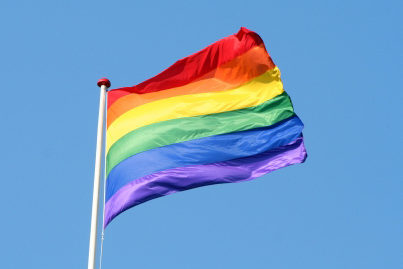The ICJ today applauded the 11 June judgment of the Botswana High Court striking down criminal law provisions criminalizing same-sex relations.
Rightly, the Court considered that, notwithstanding the fact that the provisions at issues on their face criminalized consensual anal penetration, irrespective of the gender of those involved, the law did in fact target and disproportionately affect same-sex relations.
The judgment follows shortly after the Kenyan High Court refused to invalidate an almost identical criminal provision in judgment handed down on 24 May.
“The Botswana High Court’s judgment reaffirms the universality of the rights to be free from discrimination, dignity, privacy and equality, and directly rebuts the often-made false claim that homosexuality is ‘un-African’,” said ICJ Africa Director Arnold Tsunga.
“The ICJ commends the Court, and encourages all African states to repeal archaic criminal provisions criminalizing same-sex sexual intercourse often introduced into their legal systems by colonial powers,” he added.
In a decision referencing international human rights law and standards, and citing a growing wave of global jurisprudence on the unconstitutionality of the criminalization of consensual same-sex relations, identity and expression, the Court concluded that sections 164(a); 164(c), 165 and 167 of the Botswana Penal Code violated the rights to dignity, liberty and equality of homosexual men.
Letsweletse Motshidiemang, a 24 year-old university student who identifies as homosexual, and is currently in a relationship with a man, brought the case before the Court. Advocacy organization “Lesbians, Gays and Bisexuals Of Botswana” (LEGABIBO) was admitted as amicus curiae, and supported Motshidiemang’s case.
Despite partial legislative recognition of the need to protect people’s rights, regardless of sexual orientation, and comments made by Botswana President Mokgweetsi Masisi late last year that, “there are also many people of same sex relationships in this country, who have been violated and have also suffered in silence for fear of being discriminated. Just like other citizens, they deserve to have their rights protected”, the Attorney General (AG) had opposed Motshidiemang’s challenge, describing the case as “cry babies”.
In a fitting rebuke of this position, the Court indicated that the AG had not produced a “scintilla or iota of justification” for its defense of the offending provisions and, instead relied on “bare assertion and/or speculations” about public morality.
Given the substantial evidence presented to the Court by the applicant and amicus curiae about the harmful effects of continued criminalization of same-sex relations, the Court observed that it “perpetuates stigma and shame against homosexuals and renders them recluse and outcasts”, finding that “there is no victim in consensual same sex intercourse inter se adults”.
Concluding that such discrimination against lesbian, gay, bisexual and transgender (LGBT) persons violates sexual autonomy and their “right to choose a sexual partner” the Court found that the provisions go “to the core of [homosexual persons’] worth as a human being[s] and “pollutes compassion” in Botswanan society.
“The judgment is a victory for LGBT persons in Botswana whose consistent advocacy ground firmly in human rights should be applauded. This judgment should catalyze further action from the Botswana authorities to ensure the full enjoyment of all human rights by LGBT persons in Botswana,” said Tsunga.
Contact:
Arnold Tsunga, ICJ Africa Director, t: +63 77 728 3249 ; e: arnold.tsunga(a)icj.org
Timothy Fish Hodgson, ICJ Legal Adviser, t: +27828719905 ; e: timothy.hodgson(a)icj.org





